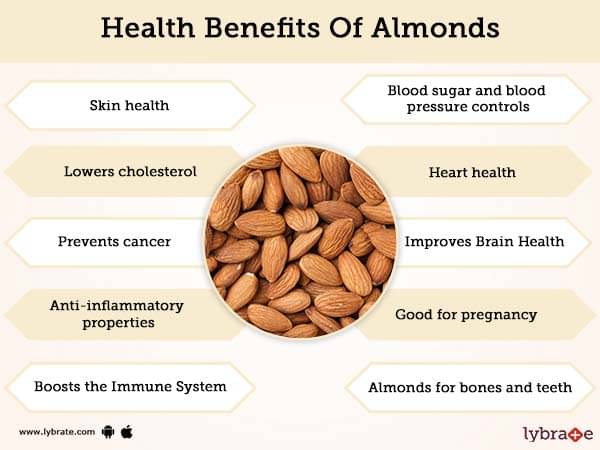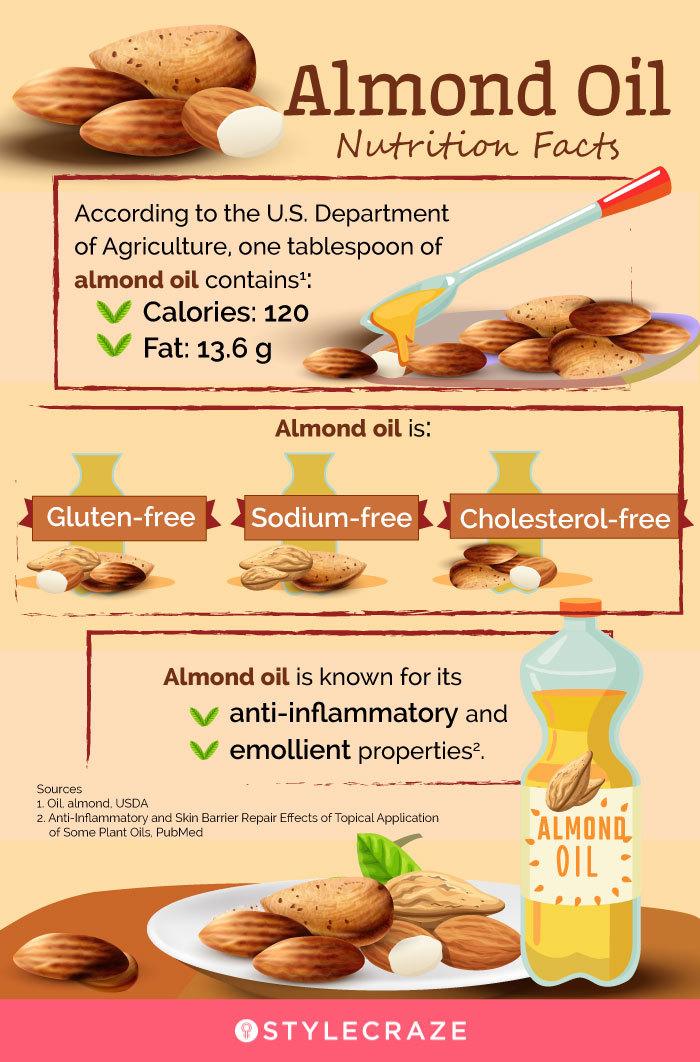Almonds: A Natural Superfood
Almonds, scientifically known as Amygdalus communis, are a popular and highly nutritious superfood, native to the Mediterranean region and Southwest Asia. Rich in vitamins, minerals, protein, and healthy fats, almonds have been celebrated for their numerous health benefits for centuries. Available in various forms, including whole, sliced, flaked, and flour, almonds are incredibly versatile and can be incorporated into a wide range of dishes and cuisines.
The Incredible Health Benefits of Almonds
Almonds are not only delicious but also a powerhouse of essential nutrients, making them an ideal choice for those seeking to improve their overall health. Rich in vitamins, minerals, protein, and healthy fats, almonds offer a myriad of health benefits. Some of the most notable advantages of almonds benefits include:
- Improved Heart Health: Almonds are packed with monounsaturated fats, which have been shown to lower levels of harmful cholesterol in the blood, reducing the risk of heart disease.
- Enhanced Cognitive Function: Almonds contain riboflavin (vitamin B2) and L-carnitine, which have been linked to improved brain function and may reduce the risk of Alzheimer’s disease.
- Better Digestion: Almonds are an excellent source of fiber, promoting healthy digestion and regular bowel movements, which can help prevent constipation and other digestive issues.
- Blood Sugar Control: Almonds have a low glycemic index, meaning they release sugar slowly into the bloodstream, helping to maintain stable blood sugar levels and prevent spikes in insulin.
By incorporating almonds into your daily diet, you can harness these incredible health benefits and enjoy a healthier, more balanced lifestyle. Remember, however, that moderation is key, as almonds are high in calories and should be consumed in appropriate portions.
How to Incorporate Almonds into Your Daily Diet
Integrating almonds into your daily meals and snacks is a simple and delicious way to reap their numerous health benefits. Here are some practical tips and ideas for incorporating almonds into your diet:
- Add them to oatmeal: Sprinkle a handful of almonds on your morning oatmeal for a satisfying crunch and an extra boost of protein and fiber.
- Mix them into yogurt: Combine almonds with your favorite yogurt, along with some fresh fruit and a drizzle of honey, for a nutritious and tasty snack.
- Sprinkle them on salads: Add a crunchy texture and nutty flavor to your salads by sprinkling some sliced or slivered almonds on top.
- Include them in baked goods: Incorporate almonds into your baking by adding almond flour or almond meal to cakes, muffins, or cookies. You can also use almond extract to enhance the flavor.
- Create homemade almond butter: Blend almonds in a food processor until they reach a creamy consistency, then use the almond butter as a spread on toast, in sandwiches, or as a dip for fruits and vegetables.
When consuming almonds, it’s essential to practice portion control, as they are high in calories. Aim for a serving size of approximately 1 ounce (23 almonds) per day, and remember that moderation is key to enjoying the full benefits of almonds.
Comparing Almonds to Other Nuts: Nutritional Value and Health Benefits
Almonds offer a wide range of nutritional and health benefits, but how do they stack up against other popular nuts, such as walnuts, cashews, and pistachios? Let’s explore the unique advantages of almonds and when they might be a better choice than other nuts.
- Almonds vs. Walnuts: Both almonds and walnuts are rich in healthy fats, fiber, and protein. However, walnuts contain higher levels of omega-3 fatty acids, which are essential for heart health and brain function. Opt for almonds when focusing on blood sugar control and walnuts when prioritizing omega-3 intake.
- Almonds vs. Cashews: Almonds and cashews have similar nutritional profiles, with almonds having a slight edge in terms of fiber and vitamin E content. Cashews, on the other hand, contain more iron and magnesium. Choose almonds for their higher antioxidant content and cashews for their additional minerals.
- Almonds vs. Pistachios: Almonds and pistachios are both excellent sources of protein, fiber, and healthy fats. Pistachios, however, have a lower calorie count per ounce and are richer in potassium and vitamin B6. Opt for almonds when emphasizing vitamin E and pistachios when seeking a lower-calorie snack with additional minerals.
Ultimately, incorporating a variety of nuts into your diet can provide a broad spectrum of nutrients and health benefits. By understanding the unique advantages of almonds and other nuts, you can make informed choices that support your overall health and well-being.
Real Products Featuring Almonds: A Showcase
Almonds are a popular ingredient in various food products, thanks to their rich, nutty flavor and impressive nutritional profile. Here are some noteworthy examples of popular food products that feature almonds as a primary ingredient:
- Almond milk: A dairy-free alternative to traditional milk, almond milk is made by blending almonds with water and straining the mixture. It has a creamy texture and a subtle nutty flavor, making it an excellent addition to smoothies, cereals, or baked goods. Almond milk is often fortified with calcium and vitamins A, D, and E, providing additional nutritional benefits.
- Almond butter: Similar to peanut butter, almond butter is made by blending almonds until they reach a smooth, creamy consistency. It is rich in protein, fiber, and healthy fats, making it an ideal alternative to traditional nut butters. Almond butter can be used as a spread on toast, in sandwiches, or as a dip for fruits and vegetables.
- Dark chocolate with almonds: Combining the antioxidant-rich properties of dark chocolate with the nutritional benefits of almonds, dark chocolate with almonds is a delicious and health-conscious treat. Look for dark chocolate with a high cocoa content (70% or higher) and minimal added sugars to maximize the health benefits.
By incorporating these almond-based products into your diet, you can enjoy the numerous health benefits of almonds in a variety of tasty and innovative ways.
Scientific Research Supporting Almond Consumption
Numerous scientific studies have investigated the potential health benefits of almond consumption. Here are some of the most significant findings, explained in layman’s terms:
- Heart health: A study published in the Journal of the American College of Cardiology found that consuming almonds as part of a healthy diet can significantly reduce the risk of heart disease by lowering LDL (bad) cholesterol levels. This is attributed to the monounsaturated fats, fiber, and antioxidants found in almonds.
- Blood sugar control: Research published in the Journal of Nutrition suggests that almond consumption can help regulate blood sugar levels, thanks to their low glycemic index and high magnesium content. This makes almonds an excellent snack option for individuals with diabetes or those looking to maintain stable blood sugar levels.
- Weight management: A study in the European Journal of Clinical Nutrition found that incorporating almonds into a weight loss plan can lead to greater weight loss and improved waist circumference compared to a diet without almonds. This may be due to almonds’ high fiber and protein content, which can promote feelings of fullness and reduce overeating.
- Gut health: Research published in the Journal of Functional Foods indicates that almond consumption can support gut health by promoting the growth of beneficial gut bacteria. This is attributed to the prebiotic fiber found in almonds, which serves as food for probiotic bacteria in the gut.
These studies, along with many others, demonstrate the numerous health benefits of almond consumption. By incorporating almonds into your daily diet, you can take advantage of these advantages and support your overall health and well-being.
Potential Allergic Reactions and Side Effects of Almond Consumption
While almonds offer numerous health benefits, it’s essential to be aware of potential allergic reactions and side effects associated with their consumption. Here’s what you need to know about identifying and managing almond allergies and intolerances:
- Allergic reactions: Almond allergies are relatively common and can cause symptoms ranging from mild (itching, hives, or swelling) to severe (difficulty breathing, anaphylaxis). If you suspect an almond allergy, consult a healthcare professional for proper diagnosis and management strategies. Keep in mind that almonds are a member of the tree nut family, and individuals with tree nut allergies may also be allergic to almonds.
- Side effects: Some individuals may experience digestive side effects after consuming almonds, such as bloating, gas, or skin rashes. These symptoms are often related to intolerance rather than an allergic reaction. If you experience these side effects, consider reducing your almond intake or consulting a healthcare professional for advice on managing your symptoms.
- Phytic acid: Almonds contain phytic acid, which can interfere with the absorption of certain nutrients, such as calcium, iron, and zinc. Soaking almonds before consuming them can help reduce phytic acid content and improve nutrient absorption.
- Portion control: Although almonds are nutritious, they are also high in calories. Consuming them in excess can lead to weight gain and other health issues. Practice portion control and consume almonds in moderation as part of a balanced diet.
By being aware of potential allergic reactions and side effects, you can safely enjoy the numerous health benefits of almonds while minimizing any associated risks.
Sustainable Almond Farming Practices and Environmental Impact
Almonds are not only a nutritious and delicious superfood but also a significant agricultural commodity. As with any large-scale food production, it’s essential to consider the environmental impact and promote sustainable practices. Here’s what you should know about sustainable almond farming and its benefits:
- Water usage: Almond production requires a substantial amount of water, which has raised concerns about its environmental impact. However, many almond farmers are adopting innovative irrigation techniques, such as drip irrigation and mulching, to reduce water consumption and promote efficient water use.
- Bee-friendly farming: Almonds rely on bees for pollination, making bee health a critical aspect of sustainable almond farming. Many almond farmers collaborate with beekeepers to provide safe habitats for bees and minimize the use of pesticides that could harm them. Look for almond products labeled as “bee-friendly” or “pollinator-friendly” to support these initiatives.
- Integrated pest management: Sustainable almond farmers employ integrated pest management strategies to minimize the use of pesticides and promote biodiversity. These strategies include monitoring pest populations, using natural predators, and applying pesticides only when necessary.
- Soil conservation: Healthy soil is essential for sustainable almond production. Many almond farmers practice soil conservation techniques, such as crop rotation, cover cropping, and reduced tillage, to maintain soil health and prevent erosion.
- Supporting eco-friendly brands: As a consumer, you can make a difference by supporting eco-friendly almond brands that prioritize sustainability and responsible sourcing. Look for certifications such as “Certified Organic,” “Bee-Friendly,” or “Rainforest Alliance Certified” to ensure you’re purchasing almond products from sustainable sources.
By promoting sustainable almond farming practices and supporting eco-friendly brands, you can enjoy the numerous health benefits of almonds while also contributing to a healthier environment and more responsible food production.









